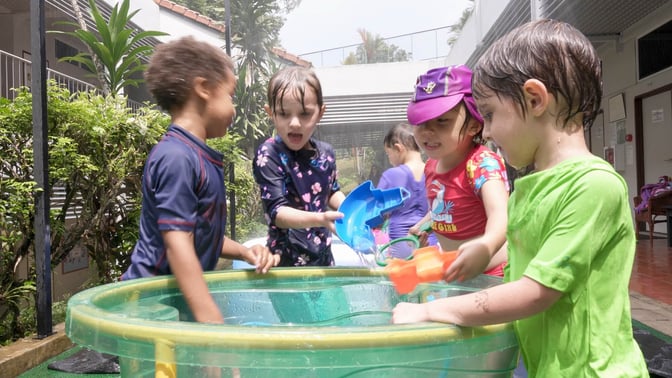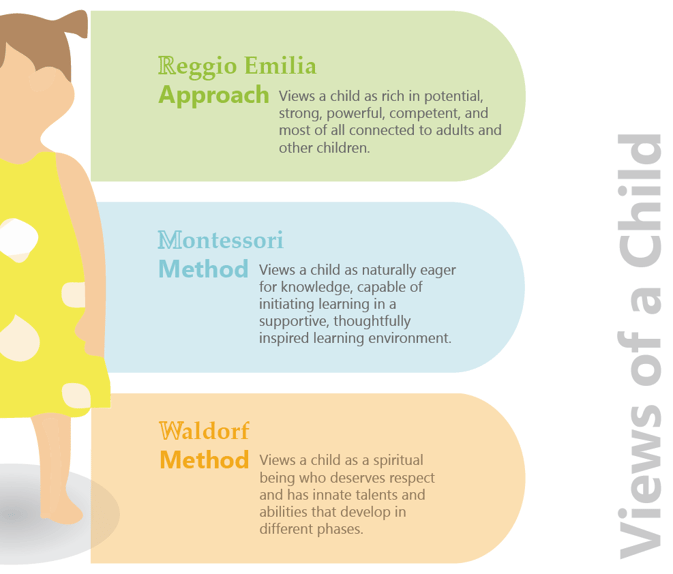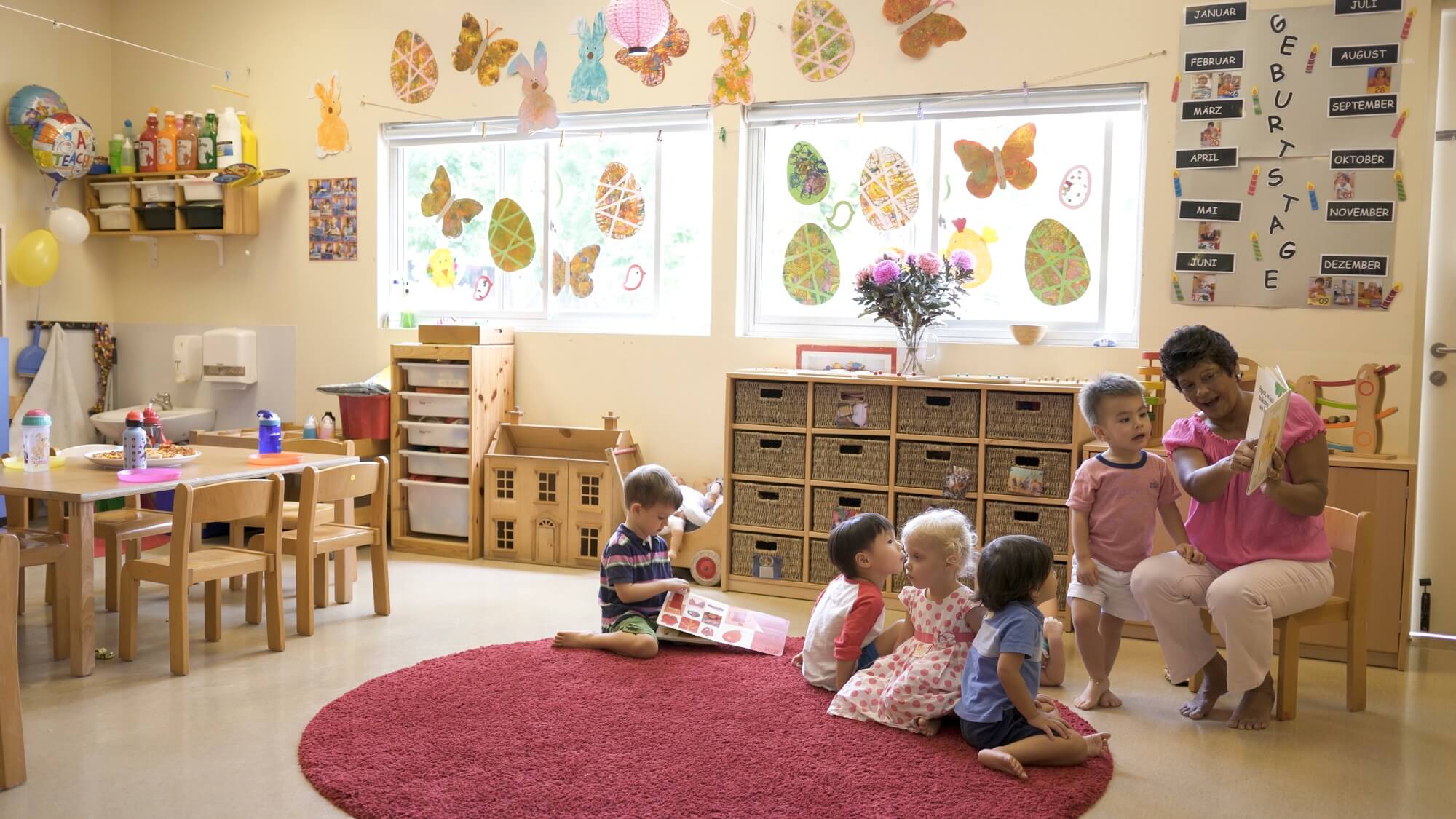
“…attending a good preschool teaches children that learning can be enjoyable and that they can be good at it”
– Edward Melhuish, Developmental Psychologist
Wondering how to find a good preschool? Picking a good preschool for your young one is not child’s play! The terminology-laden preschool landscape in Singapore can understandably be very confusing.
.jpg?width=673&height=572&name=Wordcloud%20(Pre-School).jpg)
How then should you go about looking for a preschool in Singapore, for your child to have the best beginning to their formal education? Let's look at the 3 things you need to know.
Need some extra help? Book an appointment to speak to our admissions team and preschool experts!
Ask about Pedagogical Approaches (but do not obsess over them)
If you have been doing the search long enough you might have already heard of terms like the “Montessori Method”, “Reggio Emilia Approach”, “Waldorf approach” and more.
But what should any of these terms mean to you or your young one?
Firstly, at the heart of each of these approaches is a unique image of a child and this influences the way your child is viewed by their educators.

This perspective of a child guides the following:
- Depth and breadth of curriculum
- Setup of physical spaces in the school
- Timetable design
- Nature of classroom activities
- Resources being made available to the children
- Profile of teachers being employed
- Disciplinary practices
When considering pedagogical approaches adopted by your choice of preschools in Singapore, do remember that while pedagogical approaches are valuable, no one approach is proven to be superior over another.
“To (many), Montessori or HighScope, Reggio Emilia or Waldorf, or some other school of pre-kindergarten pedagogy embodies the Holy Grail. But there's no reason to believe that they are better than the others. The key is how well a particular model of teaching is being carried out.”
- David L. Kirp, Senior Fellow at the Learning Policy Institute
Additionally, there are many commonalities between the various approaches and when implemented, they can have similar positive effects on a child’s development. Therefore, observe instead, how a preschool is directing its efforts towards combining the best aspects of these approaches to create a holistic experience for your child.
Environment Matters

It might be a plain and obvious fact to many that environment matters. But are you able to identify what makes a preschool environment great for your child to thrive in?
The key characteristic of a good preschool environment is that it makes your child feel safe - not just in a physical sense but in a psychological and emotional sense as well. Remember that as your child steps into preschool they are entering a foreign and unfamiliar territory and this can be overwhelming for them and potentially limit their openness to learning. But when this environment has a positive feel to it, is clear of aggressive and bullying tendencies from peers and full of supportive and responsive teachers, a child will blossom over time.
Besides, an environment is said to be the ‘third teacher’ to young children. The components of an ideal preschool environment should be rich with learning opportunities, offer stimulation and invite a child to explore, experiment and engage with their various senses. Look for purposeful set-ups. Ask yourself if the learning space looks like it has been designed with a child’s behavior patterns and needs in mind.
Here are examples of good indicators:
- There is sufficient space for a child to move around unrestricted
- Different areas are allocated for a variety of activities: arts corners, indoor play, libraries, science corners
- Materials are readily made available within a child’s reach
- There is space for a child’s creations in the room
- There are visual, audio and tactile learning elements
Pay Attention to the Teachers
“…although quality can refer to a number of factors, research indicates that the most important factor in determining quality of preschool programmes may be what teachers do, and how they do it, when interacting with children.”
– Edward Melhuish, Developmental Psychologist
Teachers could make or break your child’s preschool experience. As developmental psychologists note, children need a responsive and reliable adult to guide them along in a preschool environment. An effective preschool teacher is able to design lesson plans inspired by pedagogical approaches but does not doggedly stick to these plans. Instead, they favour a dynamic curriculum that takes into account how a child’s interests and needs have evolved and modify plans and activities accordingly. The next time you are in your child’s classroom, observe if the teacher is simply intent on delivering a lesson or is paying attention to the children’s many ways of expression and using these moments to model new activities and lessons.

Primary Years Programme coordinator Alison Flinchum provides an example of what this could look like:
“Given our child-centred and teacher-responsive approach, we often witness ‘learner agency’ in the children. For example, one day, one of the children who had recently eaten chicken rice at a hawker centre influenced the whole class to design and construct their own hawker stall replicas and the next day they were deeply engaged in transdisciplinary role-play. All this unfolded so organically and it was a rich experience for the children!”
There is more to a preschool than what meets the eye and being well-informed while performing the search will make a world of difference to how quickly and successfully you find a school!
Need some help? Speak to our Preschool experts and Admissions team!

